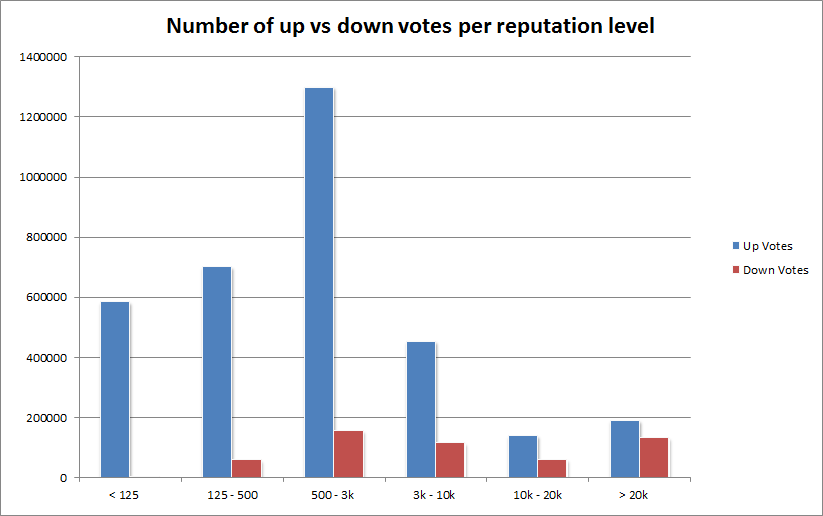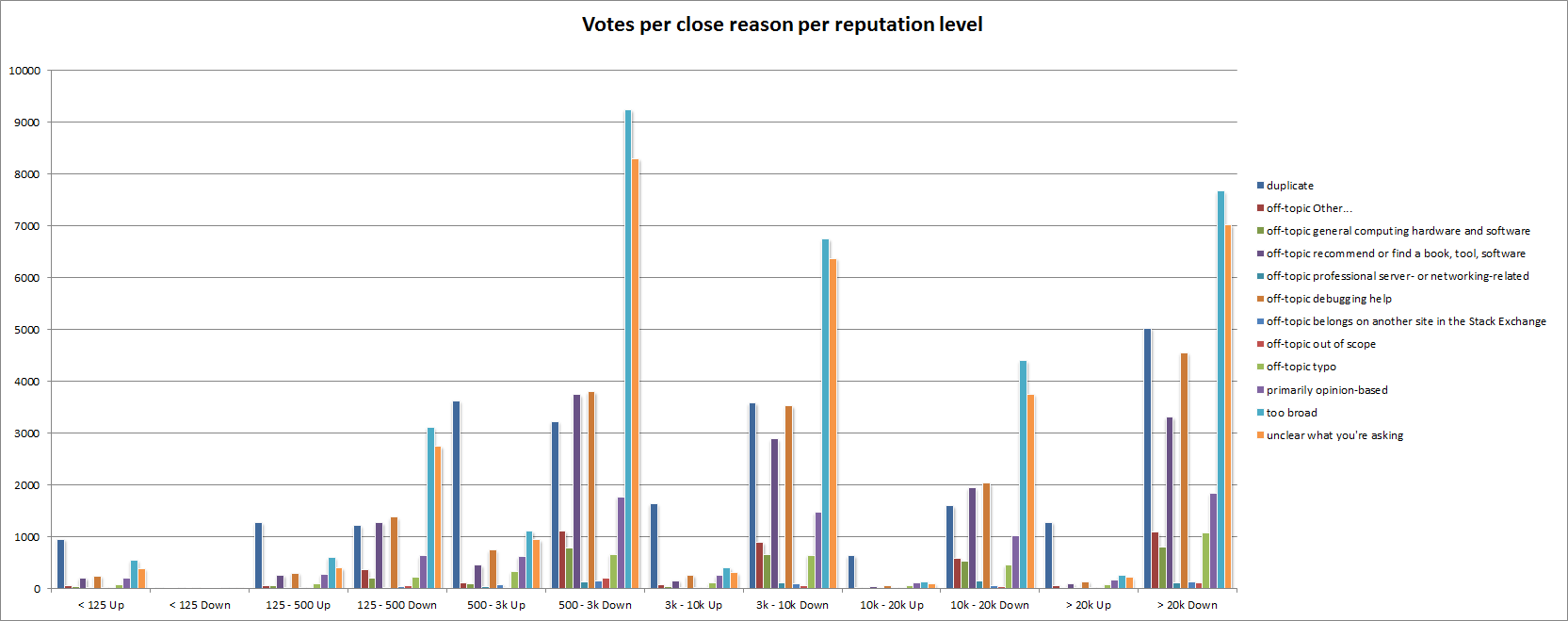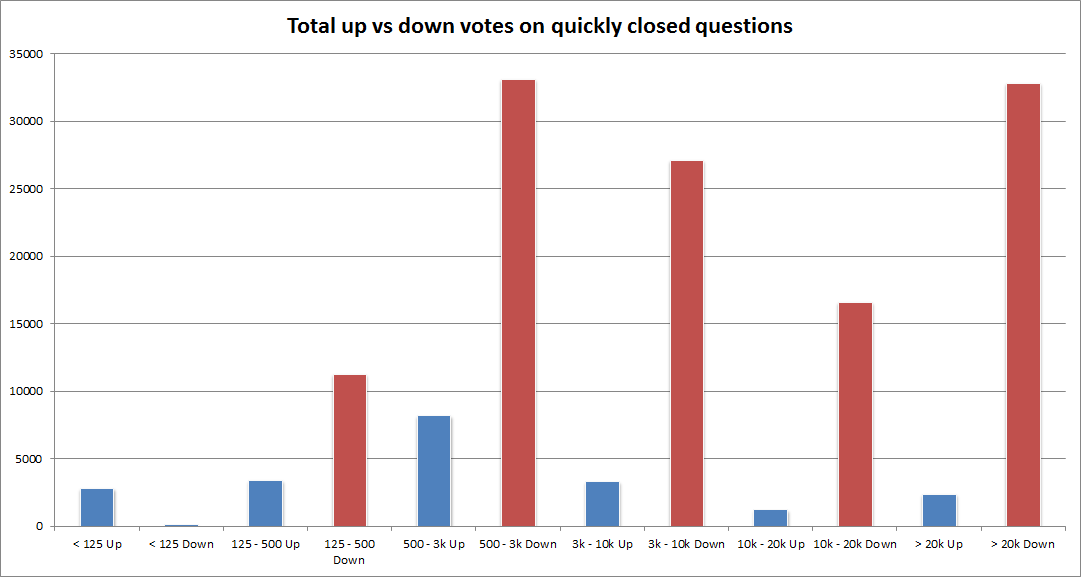In a couple of recent threads regarding how users of higher reputations behave there is a lot of speculation going on. Could we get some summarized statistics to help in these discussions?
I think some information on the following would be helpful in these discussions:
Voting patterns (up vs. down) of users at various reputation levels across the entire site
- Less than 125 (users can only upvote)
- Between 125 and 500 (Users can down vote and access review queues)
- Between 500 and 3,000 (users get access to all review queues and can edit without peer review)
- Between 3,000 and 10k (No man's land?)
- 10k to 20k (Moderator tool access)
- 20k+ (Trusted users)
This would be helpful in seeing if higher reputation levels are less selective in using their downvote. My hypothesis is that higher levels downvote more often. The -1 stings less for someone with 10k than to someone with 127. My guess is that this flip occurs most commonly around the 10k mark, when users have access to the moderation tools and can more easily see the lower quality stuff on the site.
Voting patterns (up vs. down) of users at various reputation levels on questions that are closed within 24 hours of being posted and remaining closed for more than a week (and for what reason it was closed).
I think this information will help to answer the question of who is voting for questions that ultimately end up remaining closed because of off topic-ness. It may also help to pin point what groups need assistance in utilizing Stack Overflow to its fullest extent. If we want to promote high quality questions, we should encourage our user base to vote for high quality questions.
Voting patterns (up vs. down) of users at various reputation levels on answers that are removed within 24 hours of being posted and remaining closed for more than a week (and for what reason it was removed).
I think this will help show which groups see posts that others are flagging as low quality as worthy of being up voted. Again, this can be used to help educate users in what is and is not valuable and how we can keep the site high quality.
- Reputation level at which users start utilizing their voting powers. For the sake of this, let's say a user is truly "using" their voting powers after they have cast 10 votes of a certain type. Do users immediately start upvoting when they hit 15 reputation or are they waiting until they have more rep? Do users immediately start down voting when they hit 125 rep or do they wait until they have more rep?
Unfortunately, a down vote costs a user 1 rep, so I'm not entirely sure how to measure the down vote until they repeatedly hit 125
- Voting ratio by reputation toward users of various reputations? Are users of higher reputation levels truly skewing the votes toward their posts vs. someone of lower reputation levels?
I think this type of data would be most useful to see on posts where someone of 20k+ and someone of <100 answer the same question. Does the user with 20k receive more up vs. downvotes? This will be a straight numbers thing, with the giant disclaimer that one answer may be truly better than the other. A query comparing scores doesn't easily show quality between posts.
These are a few points that I've noticed are being discussed and assumptions are being thrown around. With some of this data, we could have a more informed discussion.
It'd also help, I think, if we could get some interpretation from the community manager(s) that post this data. Trends that we see may or may not be valid. What do you see that we don't?


